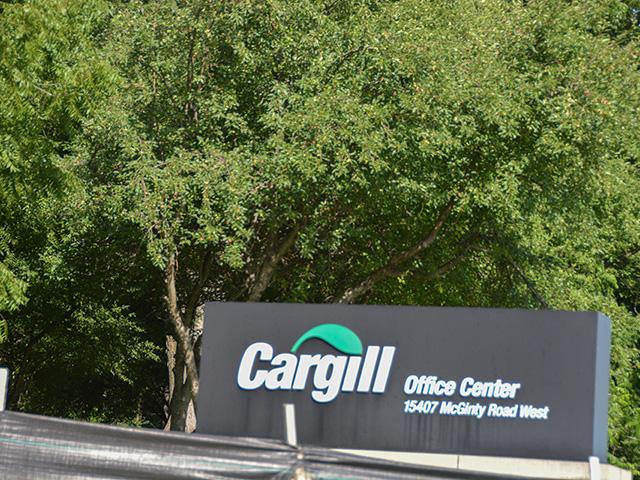Palestinians Stream Into a Southern Gaza Town as Israel Expands Its Offensive in the Center
RAFAH, Gaza Strip (AP) -- Tens of thousands of Palestinians streamed into an already crowded town at the southernmost end of Gaza in recent days, according to the United Nations, fleeing Israel's bombardment of the center of the strip, where hospital officials said dozens were killed Friday.
Israel's unprecedented air and ground offensive against Hamas has displaced some 85% of the Gaza Strip's 2.3 million residents, sending swells of people seeking shelter in Israeli-designated safe areas that the military has nevertheless also bombed. That has left Palestinians with a harrowing sense that nowhere is safe in the tiny enclave.
People arrived in Rafah in trucks, in carts and on foot. Those who haven't found space in the already overwhelmed shelters have built tents on the roadsides.
"People are using any empty space to build shacks," said Juliette Touma, director of communications at UNRWA, the U.N. agency for Palestinian refugees. "Some are sleeping in their cars, and others are sleeping in the open."
Israel's widening campaign, which has already flattened much of the north, is now focused on the urban refugee camps of Bureij, Nuseirat and Maghazi in central Gaza, where Israeli warplanes and artillery have leveled buildings.
But fighting has not abated in the north, and the city of Khan Younis in the south, where Israel believes Hamas' leaders are hiding, is also a smoldering battleground. Militants have continued to fire rockets, mostly at Israel's south.
The war has already killed over 21,300 Palestinians, most of them women and children, and sparked a humanitarian crisis that has left a quarter of Gaza's population starving. The death toll from the Health Ministry in Hamas-ruled Gaza does not distinguish between civilians and combatants.
Israeli officials have brushed off international calls for a cease-fire, saying it would amount to a victory for Hamas, which the military has promised to dismantle. It has also vowed to bring back more than 100 hostages still held by the militants after their Oct. 7 attack on southern Israel that triggered the war. The assault killed some 1,200 people, mostly civilians.
P[L1] D[0x0] M[300x250] OOP[F] ADUNIT[] T[]
The military says 168 of its soldiers have been killed since the ground offensive began.
A STREAM OF DISPLACED PEOPLE
The U.N. said late Thursday that around 100,000 people have arrived in Rafah, along the border with Egypt, in recent days. The influx crams even more people into one of Gaza's most densely populated areas.
Israel has told residents of central Gaza to head south, but even as the displaced have poured in, Rafah has not been spared.
A strike Thursday evening destroyed a residential building, killing at least 23 people, according to the media office of the nearby Al-Kuwaiti Hospital.
At the hospital, residents rushed in a baby whose face was flecked with dust and who wailed as doctors tore open a Mickey Mouse onesie to check for injuries.
Shorouq Abu Oun fled the fighting in northern Gaza a month ago and sheltered at her sister's house, which is located near Thursday's strike
"We were displaced from the north and came here as they (the Israeli military) said it is safe," said Abu Oun, speaking at the hospital where the dead and wounded were taken. "I wish we were martyred there (in northern Gaza) and didn't come here."
STRIKES IN CENTRAL GAZA
Residents said Friday many houses were hit overnight in Nuseirat and Maghazi and that heavy fighting took place in Bureij. The al-Aqsa Martyrs hospital in Deir al-Balah said it received the bodies of 40 people, including 28 women, who were killed in strikes.
"They are hitting everywhere," Saeed Moustafa, a Palestinian man from Nuseirat, said. "Families are killed inside their homes and the streets. They are killed everywhere."
Israel said this week it was expanding its ground offensive into central Gaza, targeting a belt of crowded neighborhoods that were built to house some of the hundreds of thousands of Palestinian refugees from the 1948 war surrounding Israel's creation.
Israel blames the high death toll on Hamas, which it accuses of embedding inside the civilian population, saying that its forces have uncovered weapons troves and underground tunnel shafts in residential buildings, schools and mosques.
But even Israel's closest ally, the United States, has urged it to take more precautions to spare civilians and allow in more aid. Israel says it warns civilians to leave areas that it is targeting in multiple ways and that it has worked to be more precise in its evacuation orders.
ISRAEL REVIEWS STRIKE ON REFUGEE CAMP
Civilians are bearing a staggering toll in the fighting. On Sunday, an Israeli strike on the Maghazi camp killed at least 106 people, according to hospital records, one of the war's deadliest.
In a preliminary review of the strike, the Israeli military said that buildings near the target were also hit, and that "likely caused unintended harm to additional uninvolved civilians." In a statement Thursday, the military said it regretted the harm to civilians and said it would learn from the incident.
Eylon Levy, a government spokesman, told Britain's Sky News that the wrong munition was used in the strike, leading to "a regrettable mistake."
"This should not have happened," he said.
Israel seldom comments on specific strikes and has rarely acknowledged any fault even when civilians are killed.



